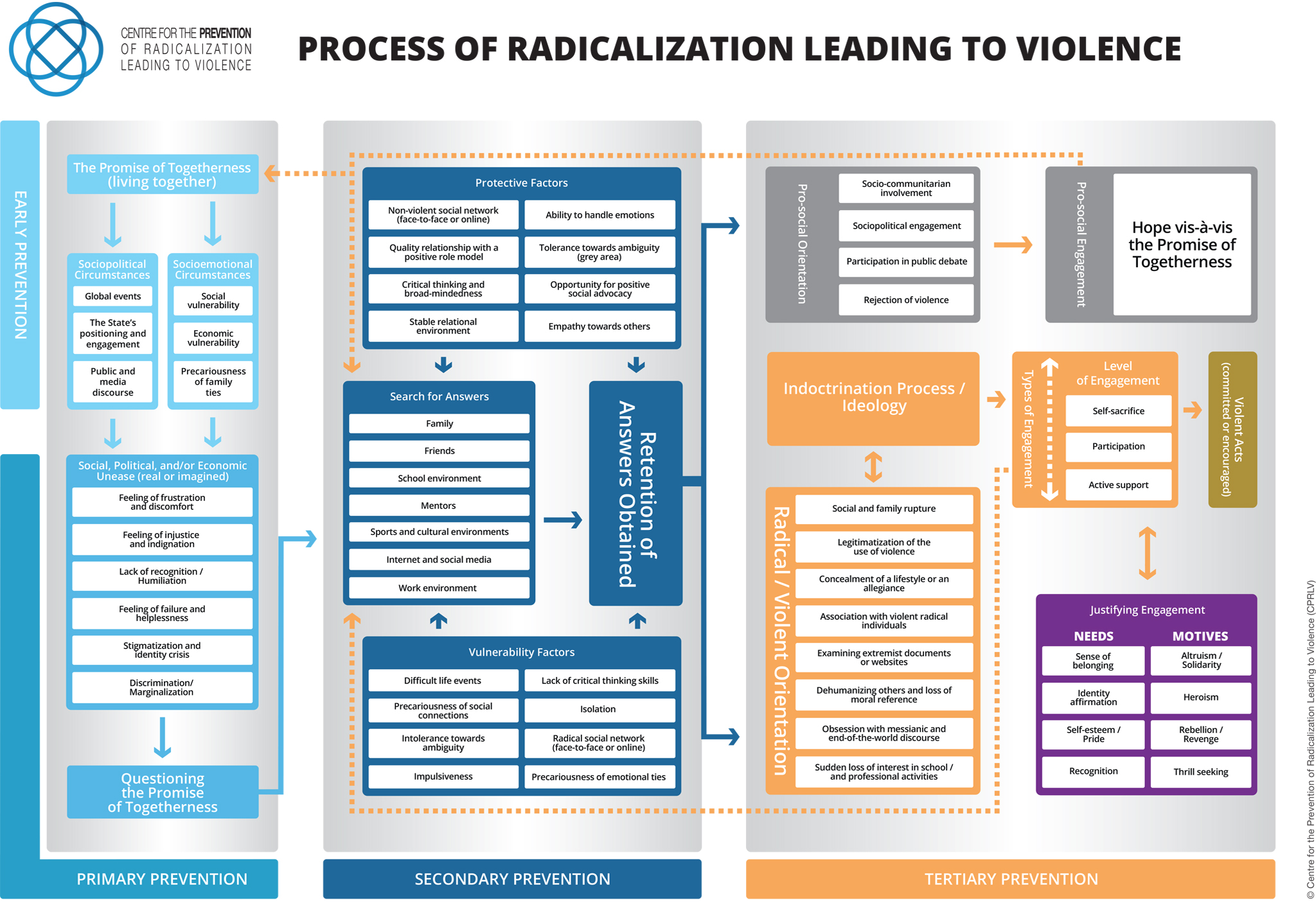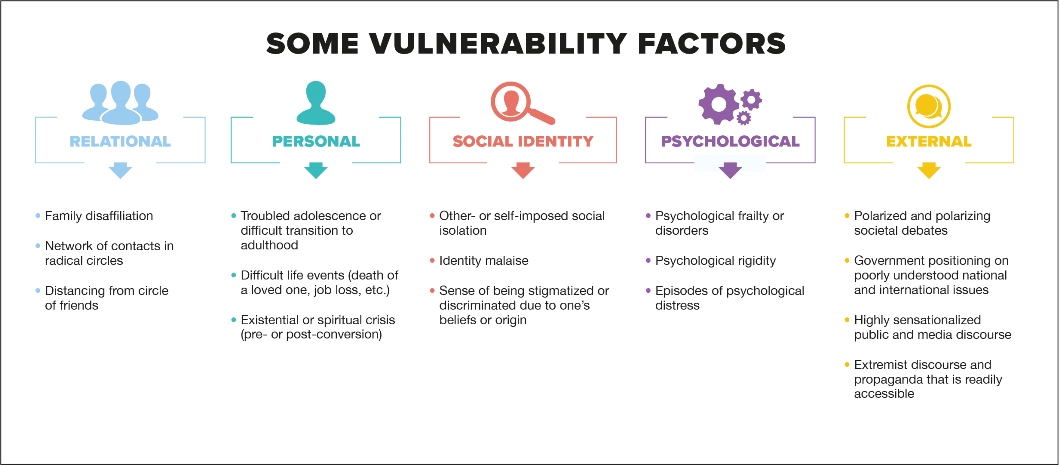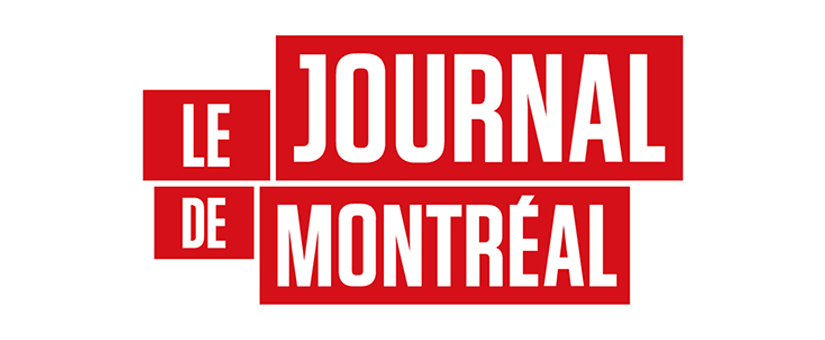- 14 November 2023
- /
- Medias, News
Radicalization Leading to Violence: A Complex, Multi-dimensional Process
The process of radicalization leading to violence follows a nonlinear, non-predetermined path, shaped by multiple factors—personal and collective, social and psychological. No single element suffices, in and of itself, to explain the radicalization of an individual or group of individuals. The process is the result of the confluence of a specific personal journey and a system of beliefs justifying the use of violence, which may be exacerbated by a perceived moral threat or threat to the individual’s identity and fanned by physical and virtual social networks.
Radicalization that leads to violence rarely takes the form of a sudden or abrupt change but rather of a complex social change that operates on several different levels, as shown in the diagram below.








